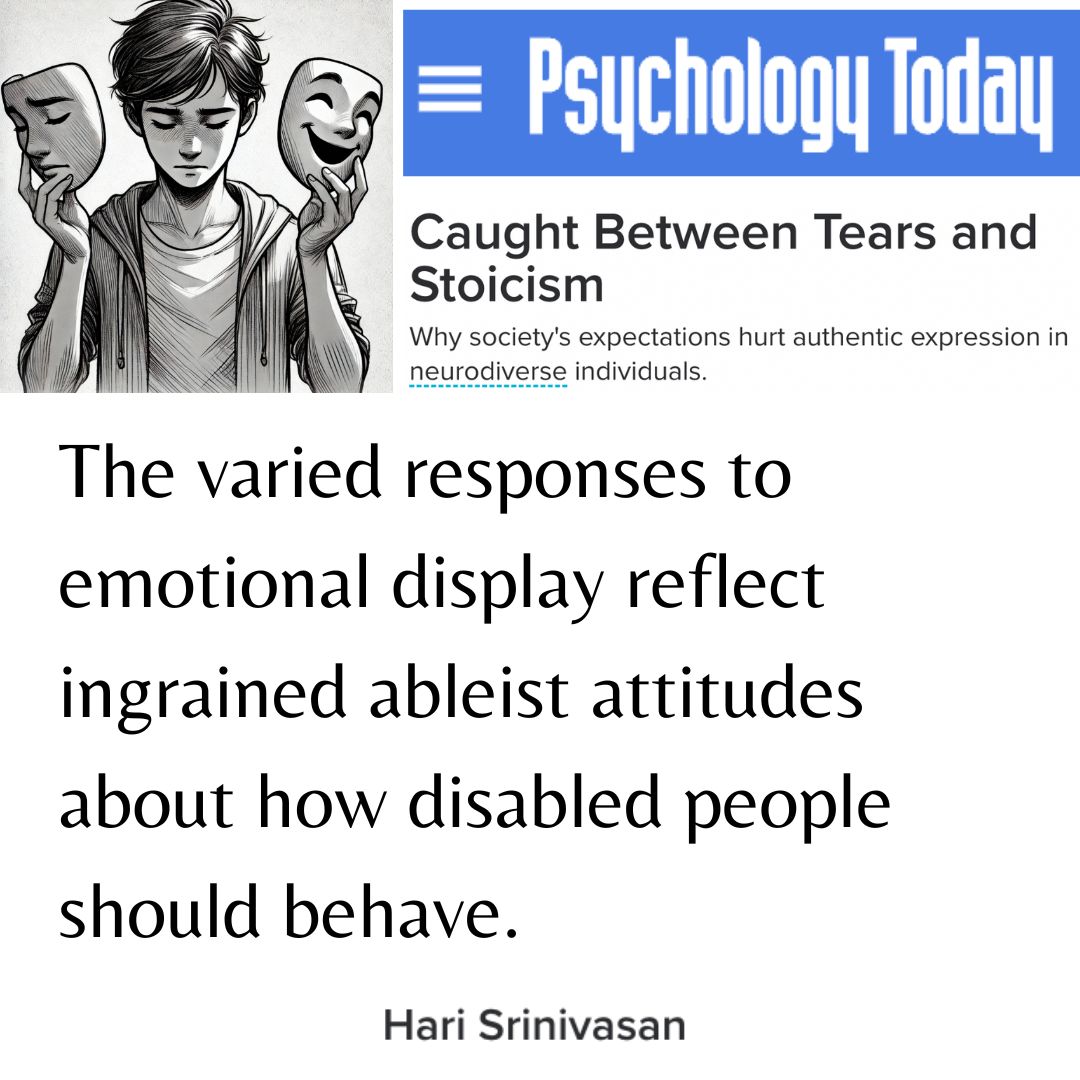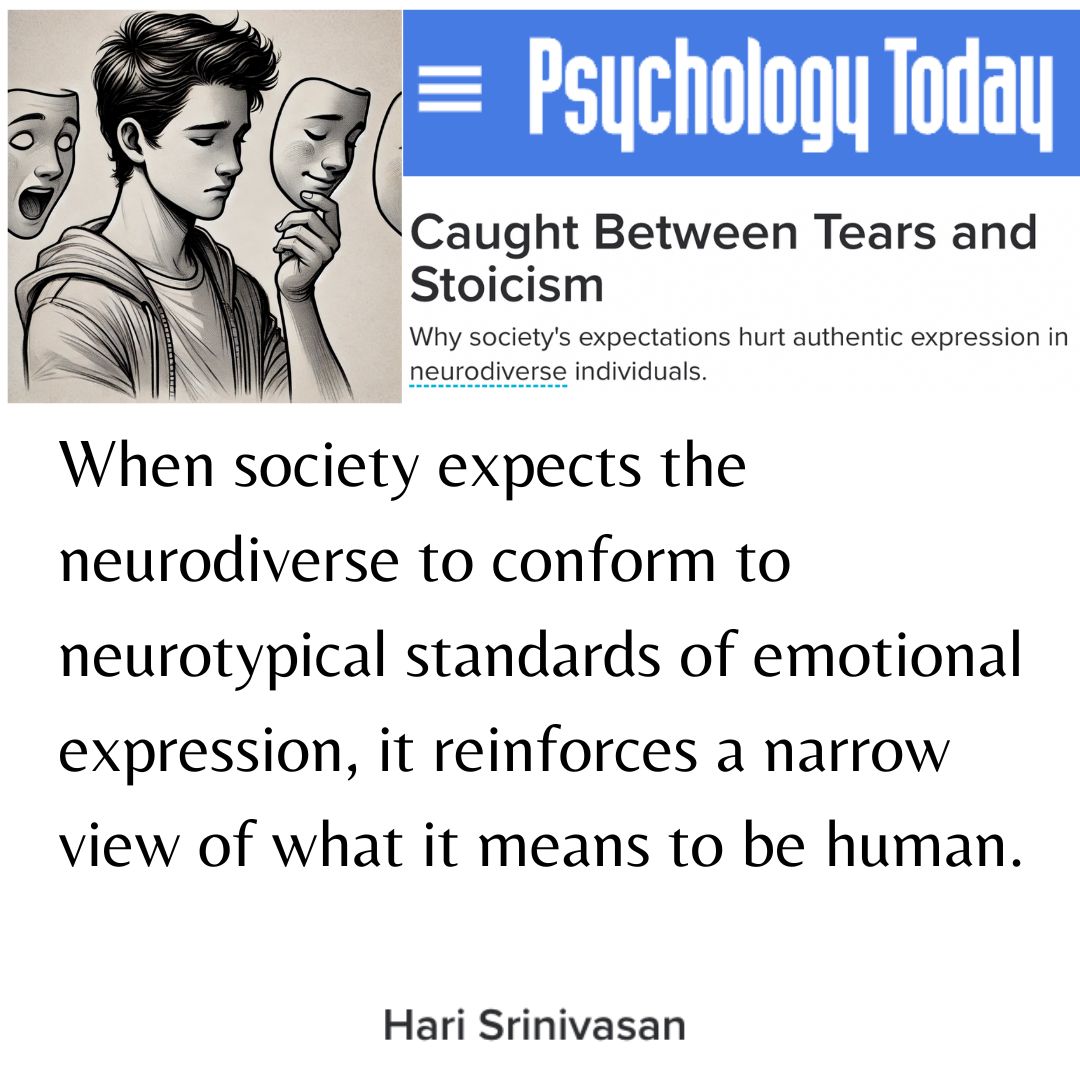Psychology Today published my piece “Why Sensory Relief Isn’t About Quiet.”
It’s about something that has quietly bothered me for years: the assumption that sensory discomfort is mainly a volume problem.
Too loud.
Too bright.
Too busy.
If we could just turn things down, the thinking goes, people—especially autistic people or those with ADHD—would feel better.
But that hasn’t matched my experience. And it hasn’t matched what neuroscience tells us either.
Quiet Isn’t Always Comfortable
Some of the hardest sensory moments I know happen in places that are nearly silent.
Waiting rooms.
Open offices during off-hours.
These spaces aren’t intense. They’re ambiguous.
In the PT article, I open with a waiting room because it captures this perfectly. Nothing is happening—but nothing is resolving either. The nervous system stays on standby, tuned for change. Time stretches. Small sounds take on disproportionate weight.
By contrast, walking down a busy sidewalk can feel easier. There’s noise, movement, and unpredictability, but there’s also direction. Flow. A sense of what’s coming next.
That contrast is the heart of the piece.
The Neuroscience Thread
The article leans on a simple idea from neuroscience, even though it doesn’t use much jargon:
The brain isn’t just reacting to stimulation.
It’s constantly trying to stay oriented in time.
At every moment, it’s asking a quiet question:
What’s happening next?
When environments answer that question—through clear timing, transitions, and structure—perception feels smoother, even if the environment is busy. When they don’t, attention stays suspended, even if the environment is quiet.
This isn’t about preference or personality. It’s about coherence.
Neuroscience gives us language for this—predictive processing, multisensory integration, expectation—but what matters most to me is what those ideas explain in real life.
Predictability ≠ Sameness
One thing I was careful about in this piece was predictability.
Predictability is often misunderstood, especially when autism is involved. It gets flattened into a stereotype: rigidity, sameness, control.
That’s not what I mean.
Predictability doesn’t require repetition. It doesn’t require things to stay the same. It only requires that changes make sense—timing is consistent, signals match their sources, events unfold in context.
In the article, I describe predictability less as a preference and more as a stabilizer. Something that helps the nervous system keep its footing in time and space.
That framing matters. It shifts the conversation away from “why are you so sensitive?” toward “what structure is missing here?”
Why “Just Wear Headphones” Falls Short
Another reason I wrote this piece is frustration with well-meaning but incomplete advice.
“Just wear noise-canceling headphones.”
“Just reduce stimulation.”
Sometimes that helps. Sometimes it doesn’t.
Turning the volume down doesn’t automatically make a situation feel settled. In some cases, it removes cues the brain relies on to stay oriented, making the world quieter but no more legible.
What helps more often are small changes that increase clarity:
-
Clear transitions
-
Consistent timing
-
Advance notice
-
Signals that match what’s happening
These don’t quiet the world. They organize it.
From Accommodation to Design
One subtle shift I wanted to make in this article is how we talk about solutions.
I don’t frame these ideas as accommodations alone. I think of them as design choices—ways of supporting perception so it doesn’t have to stay suspended.
When sensory strain is framed only as a personal limitation, the solution is always to cope more: tolerate longer, adapt faster, endure quietly.
A focus on predictability and coherence asks something different of environments instead.
What I Hope Readers Take Away
If there’s one thing I hope readers notice after reading the PT piece, it’s this:
Pay attention not just to what feels loud or busy—but to what feels unfinished.
Where does perception settle into rhythm?
Where does it stay waiting?
Sometimes what the nervous system needs most isn’t quiet.
It’s coherence.























